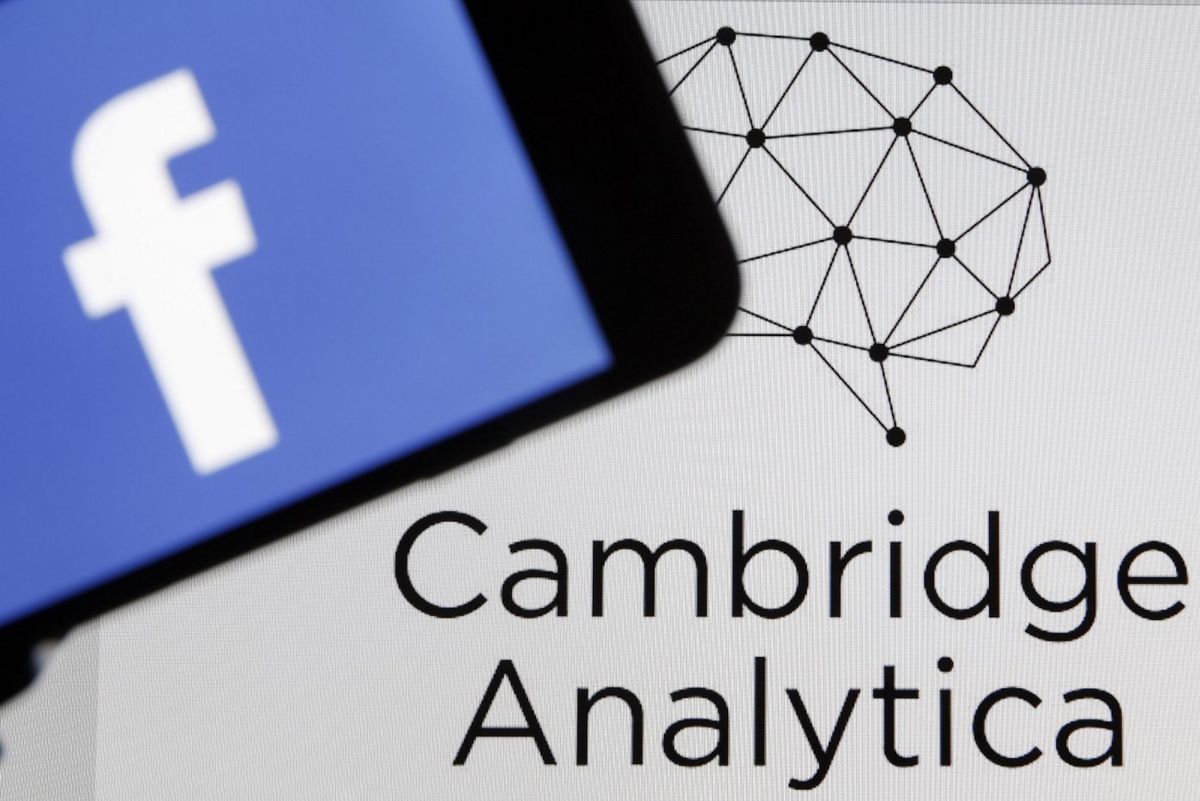New Cambridge Analytica files to expose “industrial scale” voter manipulation

A few minutes every morning is all you need.
Stay up to date on the world's Headlines and Human Stories. It's fun, it's factual, it's fluff-free.
According to a January 4 report in the Guardian, a new batch of leaked documents from the defunct political consulting firm Cambridge Analytica show that the company manipulated voters on an “industrial scale.”
The article suggests the leaks “lay bare the global infrastructure” of the company that collapsed in 2018 after revelations it had misused the data of 87 million Facebook users.
An anonymous Twitter account called HindsightFiles began posting the leaks on January 1. According to the Guardian, the account will release more than 100,000 documents over the next few months. The leaks relate to the operations of Cambridge Analytica in 68 countries. So far, the account has posted material showing Cambridge Analytica’s links to elections in Malaysia, Kenya and Brazil.
Also made available are files regarding Iran and former Trump Administration National Security Advisor John Bolton.
The account claims that Bolton paid Cambridge Analytica for psychographic targeting via his Super PAC in 2013-14. It’s further claimed that Bolton used targeted adverts to increase his public profile, convince people of the importance of National Security and to support Republican candidate Thom Tillis in the 2014 Senate election in North Carolina. The leaked documents reveal that Bolton’s association with the firm continued until 2017.
In a January 2 post, HindsightFiles tweeted that upcoming leaks would provide further details of Cambridge Analytica’s efforts to influence the 2016 US presidential election and the UK’s Brexit referendum.
The Guardian reports that the source of the leaked documents is Brittany Kaiser, a former Cambridge Analytica employee turned whistleblower.
The report also alleges that the files are the same as those subpoenaed by Robert Mueller in his investigation into alleged Russian interference in the 2016 presidential election. Kaiser handed some of the same documents over to the British parliament in April 2018.
Kaiser provided the documents from her email accounts and hard drives. Although she previously provided material to British and American investigators, Kaiser said there were thousands of pages that showed a “breadth and depth of the work" that went “way beyond what people think they know about the Cambridge Analytica scandal."
According to Kaiser, the leaks show that the firm was working in 2017 for a Ukrainian political party while at the same time being investigated as part of the Mueller inquiry. The Guardian reports that the leaks detail the company’s role in the development of a “sophisticated infrastructure of shell companies that were designed to funnel dark money into politics."
As well as exposing the firm’s global operations, the leaks include “emails between these major Trump donors discussing ways of obscuring the source of their donations through a series of different financial vehicles." Kaiser said that the new set of documents “expose the entire dark money machinery behind US politics."
Kaiser decided to release the documents because “it’s so abundantly clear our electoral systems are wide open to abuse." She added she was “very fearful about what is going to happen in the US election later this year."
Alongside revealing the threats to electoral systems, the whistleblower added that she had made the documents available “for the public good" and to “strengthen the case for data rights and enforcement of our electoral laws online globally.”
The leaks coincide with public comments made by Christopher Steele, the former chief of the MI6 Russia department and the author of the Steele dossier. The retired intelligence official warned that while Cambridge Analytica had closed down, the failure to punish those involved in the scandal means that “other, even more sophisticated actors will have been emboldened to interfere in our elections and sow social divisions."
Christoper Wylie, another Cambridge Analytica whistleblower, echoed Kaiser’s and Steele’s concern about future voter manipulation. Speaking to Vox in November 2019, Wylie said American voters are “primed to be exploited." He added that if “a relatively small company in London" can successfully target US voters, “what happens when China becomes the next Cambridge Analytica?"
The Facebook and Cambridge Analytica scandal
News broke in early 2018 that the political consulting film Cambridge Analytica had collected the personal information of millions of Facebook users without their knowledge or consent. The firm, hired by the 2016 Trump campaign, then used the data for political advertising purposes.
Cambridge Analytica was able to access the personal information of Facebook users through a quiz app built into the social network by Aleksandr Kogan, a Russian American who worked at the University of Cambridge.
The app not only gathered data from people who took the quiz but from the Facebook friends of respondents as well.
According to the New York Times, the harvested data was so detailed that Cambridge Analytica was able to create in-depth profiles of users and target them with the most effective adverts.
Other reports revealed that the quiz provided the company with the personal data of up to 87 million people. Whistleblower testimony claimed that only about 270,000 users had consented to allow the app access to their data.
In a November 2019 Fast Company article, one of the Cambridge Analytica whistleblowers said that during the 2016 US presidential campaign, the firm “was the backbone of both pro-Trump and anti-Hillary digital operations.” They added that the company was at the forefront of efforts to spread misinformation and suppress Democratic voter turnout.
Following the scandal, Cambridge Analytica closed down and regulators ordered Facebook to pay a $5 billion fine. A UK parliamentary investigation later labeled the social media site “digital gangsters” for its role in the controversy, which was “facilitated by Facebook’s policies."
Even though the company disbanded in 2018, both Wylie and Kaiser say that former Cambridge Analytica employees are still working with the Trump campaign.
Have a tip or story? Get in touch with our reporters at tips@themilsource.com




Comments ()